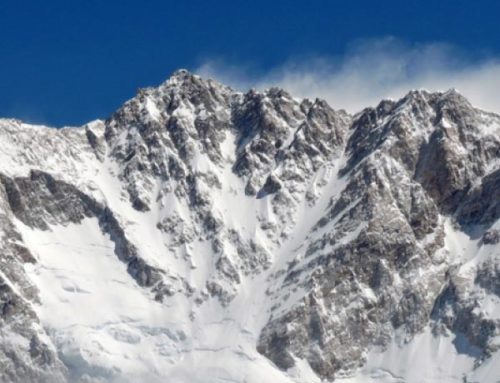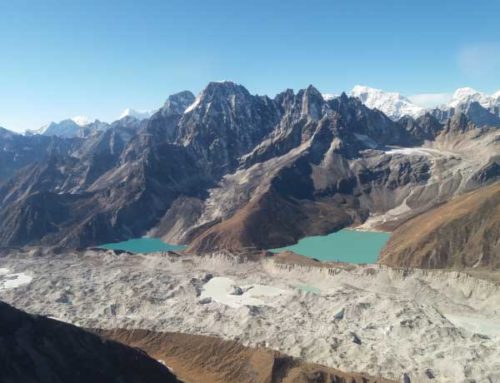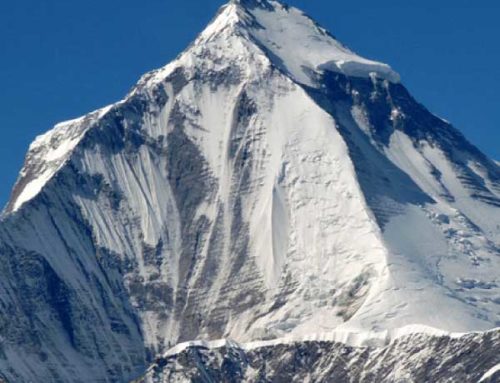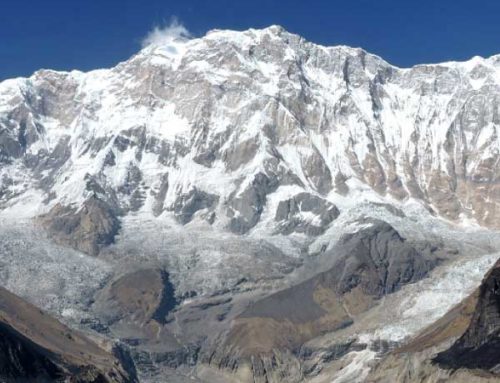Living with Headhunters
Amazon Jungle, Oriente, Ecuador
August 17, 1960
Winyáhei! Winyáhei!
The going was rough, very rough. The towering jungle trees, interlocked above us, permitted only an occasional shaft of light to pierce the dripping darkness; this constant wetness had made the trail a slippery, sucking thing of frustration. The jungle base was rotted vegetation and fallen trunks of trees, giant roots and vines that you stumbled over in the dimness.
One hour, two hours – a sudden burst of chattering voices directly above would lift my head and I would search for their owners; a screeching to my left, coming as quick as a cough, would swivel my eyes in that direction.
I never even saw a movement, much less a body, but I would get a blow in the face by a vine as thick as a man’s wrist that had been waiting for me as it hung straight down from forty feet, and I’d hit the glistening red-brown mud on all fours once again.
Thirty minutes more, and then a turning and a raising of a left hand stopped me.
“We will reach the Shuaria in about fifteen minutes. The Curaka knows, of course, of our coming. All has been arranged – but it is necessary to follow custom. Now, repeat after me this word: Winyáhei (I come!).”
I did so, again and again. Winyáhei! Winyáhei!
“Good. Now you are to shout it, right after I call it out first. Then we repeat it twice more. Alright. Then I will yell another word twice, but this you will not repeat: Yachuta! Yachuta! (My brother, my brother!).”
Five minutes passed, and the warm rain stopped. The dripping kept in step with us, but the darkness grew less intense about us and seemed to lift my companion’s spirits, for he began to talk without turning or stopping; it was almost as if he were giving a lecture.
The Jivaro
“There has been no cultural nation in the history of the Earth like the Jivaro. Only he shrinks the heads of his enemies – and how stupid the world is to believe he does it solely to have a trophy, to hold it high and shout ‘See? I have killed my enemy, here is the proof!’ So much has been written, so little is true; sensationalism, writers making things up, seeing things as they want to see them, writing as if they knew, as if they understood the why and the how of their existence.”
He stopped. No chattering of monkeys, no screeching of parrots now, no din of insects. There was just the dripping, the strong jungle smell, and the two of us standing alone in that deep-green, shining cathedral.
“The Jivaro’s whole world is filled with spirits, magic, and witchcraft. See that tall, skinny palm tree over there? It is the chonta. To the Jivaro it has great power; a spirit lives within that brings fear to all evil spirits and demons, and therefore all his spears are made of its hard wood. The tsantsa, or shrunken head, must be tied to a chonta lance at the victory feast; any other spear with an iron point would not keep the bad spirits away. It has great supernatural power. The spirit living within it is the wakani.”
He looked up, as if he could see through that stitched ceiling to the sky, and his voice rose.
“The Rain God, who lives in the mountain peaks, the Anaconda God, who lives in the rapids, the Moon, the Sun, the Earth Mother: All are living spirits. The witch doctor, when he dies, becomes a bear to be feared if his murder is not avenged. The warrior’s soul after death is a jaguar if he was brave. A child is a sweet and beautiful bird…”
His voice trailed off…
Looking ahead now, I could see no change whatsoever in the character of the growth around us, when Ralph, of an instant, stopped me with his outflung right arm:
“We are at the edge of the Shuaria,” he said quietly as he looked at his wristwatch. “And we are early. Tangamashi expects us when the sun is directly over his hea; we wait.” He stepped over to a large fallen tree trunk, inspected it closely, and sat down.
A Challenge I Couldn’t Refuse
“So, what are you going to do next, Jack – live with headhunters?”
A friend of my Dad’s had stopped by our home in Glendale, California to pay us a visit. It was 1959 and I was 15 years old. The year before, I had totally lucked out climbing the Matterhorn in Switzerland. An earlier stroke of fortuitousness had enabled me, when I was 12, to meet President Dwight Eisenhower in the White house as the Youngest Eagle Scout in Boy Scout history.
So I was often asked, “What’s next?” by people, and my father’s friend thought he’d kid me by suggesting the most outrageous thing that he could think of.
But after the laughter died down, I looked at him and asked seriously, “What headhunters?” This took him aback for a moment, then he replied, “Oh, I read some article once about this headhunter tribe in the Amazon jungle that shrinks an enemy’s head when they kill him – only tribe in the world that makes shrunken heads. Actually, it was about a medical doctor who thinks the herbs they use for head shrinking could be used to shrink a cancer tumor.”
Now I was taken aback and wanted to know more, but all he could remember was it was a tribe in the Amazon. “Ecuador, maybe,” he said.
Dr. Ferguson and the Shuara
After I turned 16, I was able to pass tests UCLA had allowing a high school senior to attend classes as a college freshman. I wanted to take classes in anthropology. Remembering what my father’s friend kidded me about and with my shiny new driver’s license, I paid the consulate of Ecuador in downtown LA a visit.
The folks there did not want to talk about headhunters in their part of the Amazon called the Oriente, although they did tell me the tribe’s name, the Jivaros. They brightened up when I asked about the doctor. “We know him, he is a good man trying to cure cancer. He gets his visas from us as his clinic is in Riverside (an hour’s drive away! I thought). His name is Dr. Wilburn Ferguson.”
When I called the clinic, I learned he was in Ecuador. I wrote him a letter explaining how I was a beginning student in anthropology and how I had been reading all I could about the Jivaros and found them fascinating. Not simply because of the practice for which they were renowned, but for their legendary independence as they were the only tribe to successfully rebel against the Spaniards.
In 1599, I had learned, a Jivaro chief or curaka named Quirruba led a revolt taking thousands of Spaniard heads, so horrendous the Jivaros had been left in peace ever since. It would be a privilege, I wrote, to spend a summer learning from and living with them.
Dr. Ferguson wrote me back with an invitation to come to the Oriente that summer (1960), where he would arrange for me to live with a clan of Shuara – what Jivaros call themselves – whose curaka was his close friend, Tangamashi. His son Ralph, who had grown up among the Jivaro and spoke Jivaroan, would guide me.
All it would cost is the flight from LA to Quito and a few dollars for a bush plane to Sacua in the Oriente. I had saved up enough from two years of giving tennis and judo lessons to kids younger than me. All I had to do now was convince my parents to go off all by my lonesome at age 16 to live with headhunters in the Amazon. To this day, I haven’t a clue how I managed to do this.

Jivaro territory – Tangamashi’s clan lived between Macas and the Peruvian border
“So Jack, what was it like?”
One mark of a real adventure is the impossibility of truly describing it – you have to experience it yourself to understand. “What was it like to live with, to be adopted into, a tribe of actual headhunters who really do shrink the decapitated heads of their enemies?” It’s a question I’ve been asked many times, and there’s never an adequate answer.
First, that’s something you never ask yourself at the time. At the time, you’re in the moment living the experience. Only after do you reflect on it.
Second, it’s without real concern. I knew I was not part of the Jivaro belief system, so could not be accused of witchcraft murder requiring a payback death. Further, as a 16 year-old boy, I was obviously no threat – which I took care to reinforce by treating everyone kindly and with respect. Thus Tangamashi performed an adoption ceremony for me, making me a part of his family.
With any adventure, it’s critical to be aware of the risks involved, and prepare to minimize them as much as possible.
Third, a true adventure is an overwhelmingly powerful and intense experience. You are immersed in a world vastly beyond ordinary daily life. Yet this is their life. You can’t ask them, “What is it like to shrink a human head?” What is it like? The question would make no sense to them. But they can describe the why and how of it.

The author learning to throw a chonta spear
No Accidental Deaths
No death, for the Jivaro, is accidental. When a human being dies, he or she is murdered – killed either by malicious spirits crushing them to death by a falling tree in a storm, drowning them in a river, or biting them with a poisonous snake; witchcraft murder by otherwise inexplicable sickness; or real murder with a spear in their stomach.
As in most all societies, murder must be avenged. Since there are no police and courts in the jungle, such avenging must be personal. The clan’s uvisheen or shaman begins by going into his ayamdai (“vision world”) via hallucinogenic maikiua tea (made from Datura arborea leaves), where his personal arutama (spirit) reveals what enemy clan is the perpetrator (note the guilt is collective, adhering to the clan and not the individual). Then a payback raid of blood revenge is planned.
To hear Chief Tangamashi describe how such a head-taking is conducted, over bowls of chicha manioc beer (fermented with saliva), as the firelight of glowing embers dance across his face in the jungle night, is a life-memorable experience:
For seven nights before, we drink much chicha and dance the anekma war dance. On the last night, we paint our bodies and faces in black, tell our wives to have no fear for we will take many wakanis (souls). We walk all night to the hea (hut) of the enemy and attack at first dawn after strangling the hea’s sleeping guard dogs.
We wait until the first Shuar (singular of Shuara) steps out of the men’s side of the hea. We throw our chonta spears into his chest, we rush up to grab his head and slice it off with a machete. We race back into the forest as quietly as we came. This is if it goes well. If it does not and the enemy is alarmed, then it is a fight to the death and we must takes as many wakanis as we can.
The Tsantsa
This was followed by as vivid a description of the resulting blood and gore as imaginable. When that was over, I overcame being traumatized by asking “And the tsantsa?” Tangamashi responded:
The chonta wood of our spears has great magical power. The wakani of whoever is killed by it will race far away in fear, and then he will come searching for his home – which is his head, his tsantsa – to re-enter it and be at peace. If he cannot do this, he will magically harm and destroy his killer.
So we must carefully prepare the tsantsa. The most skilled one among us, after carefully studying what the man looked like, skins the head [from the back, nape to crown], sews it back up, and boils it with leaves of certain plants [the ones Dr. Ferguson was studying]. This starts the shrinking. Then hot sand from the fire is stuffed into the sack of skin many times as the skin shrinks more and can be shaped to look like the man in life.
When it is done, it is the size of a man’s fist and looks like the man did in life. This is so the wakani will recognize his home. Back at our hea, we perform a victory ceremony, putting the tsantsa on a pole and call in its wakani. When the uvisheen says the wakani has done so, he is told that he is at peace in his home and is now part of our clan. The uvisheen then sews up the tsantsa’s lips so he cannot escape, for he can only do so through the mouth.
The wakani is no longer our enemy – and we have made sure he cannot be, for shrinking his tsantsa shrinks his power to do us harm. He will stay forever in his small home.
Tangamashi glanced up. On a shelf, I could see a row of palm leaf baskets. His nod to me confirmed that each contained the tsantsa of a now-former enemy.

The author with Chief Tangamashi in 1961
A More Peaceful Future
That was well over half a century ago. The Shuara Jivaros still live in the Oriente of Ecuador, and while they no longer engage in head-hunting raids with a collection of tsantsa shrunken heads in their huts, they have retained their culture mostly intact. May they continue to do so.
I have lived all my life having unforgettable experiences and adventures – and enabling people with an adventurous spirit to have them as well. Now my sons have joined me in Wheeler Expeditions. We hope you will have an adventure with us together soon.
Note: Dr. Ferguson passed away in 2001 at age 94. His story is told by Medicine Man Productions, which is dedicated to making a movie of his life, and to bring his cancer treatment, Amitosin, based on the 30 plant juices, herbs, and roots used to shrink the tsantsa head skin, to market. Amitosin has no known side effects and has a near 100% success rate in curing cancer.





